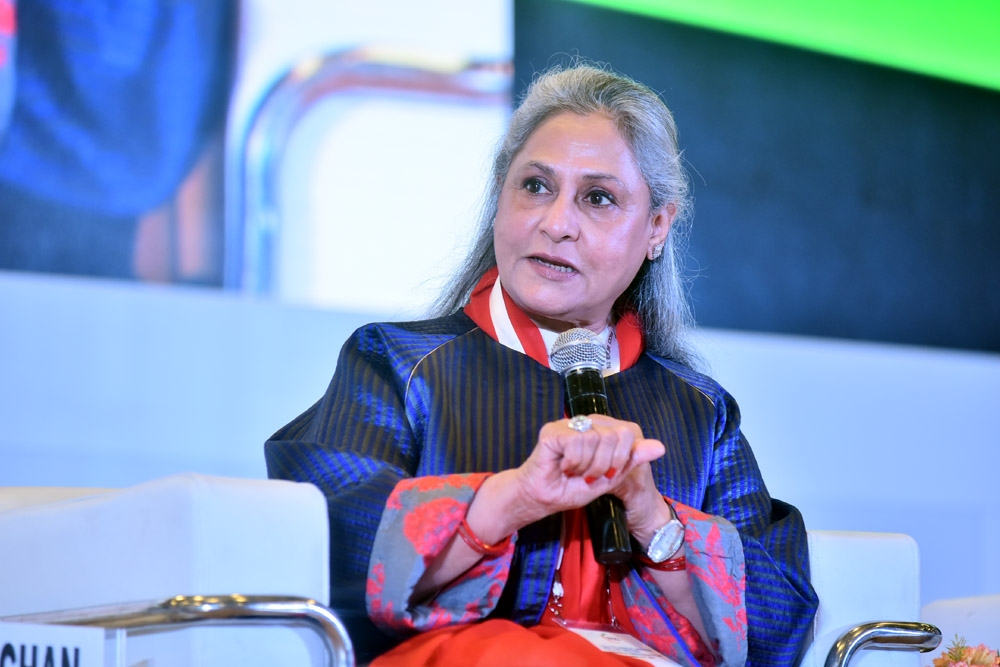
The year 2020 being a leap year, as usual one feels special about it. Besides the regular year-round events, the leap year also brings along the Olympic Games. And now that the Indian sportspersons are doing well in many sporting events, the Olympics are something we Indians do look forward to…writes Vinod Mirani.
Among regular fixtures comes the IPL, new film releases and a horde of festivals that the country celebrates as one.
As for films, as a trade journalist and an observer, like in all faculties of journalism, one does this summing up of the year gone by. It is usually titled, “The Year That Was” or “2020 In Flashback” and so on. Summing up the year going by is a routine the media has been following, since no one knows how long! And, the same will be done for 2020, too. But, the summaries will be dominated by the use of the words: Covid-19, Corona, the Pandemic and related terms.
Not much else to write about this year.

Like the rest, for the film industry too, the year started on a normal note. Films released as scheduled. In the earlier practice, the filmmaking was basically a tripartite business. A filmmaker earned the trust and confidence of the distributors whom the exhibitors trusted. These three sectors worked as an extended family. None was complete without the other.
If a distributor lost on a film, the producer accommodates him in his next film, and, the same applied if a film did not fare well at a cinema — in which case the distributor extended support to him. If that practice was still prevalent, corona or any pandemic would not have proved to be as catastrophic for the film industry as a whole and the exhibition trade in particular. They would have guarded each other.
The film trade was reduced to ‘Of, For and By’ the exhibition trade/the multiplexes. The producer and the distributor suddenly had no say. The stranglehold had become so strong that when the lockdown happened in mid-March and a couple of producers, with ready-to-release films, opted to give the rights to the OTT streaming platforms, some multiplex chain management even threatened these producers with retaliation! You see, that extended family model of film business was long gone.
Covid-19 may have struck in 2019 but the impact started to be felt around March ’20. Prime Minister Narendra Modi ran a trailer of what was to follow with a one-day lockdown, followed by a 21 day lockdown. But, it was not slated to be a three-week closure. It has been going on interminably to date despite a series of unlocking.

While film production came to a standstill along with other activities all around, cinema halls bore the maximum brunt. Over a period, the authorities let production activities begin with a number of restrictions, which brought relief mainly to the television channels. Film shootings were still rare.
After a lot of representations, the authorities in some states also allowed cinema halls to open up. It was a futile attempt by the exhibitors to insist on reopening. For, there was neither the supply, since no producer of a major production was willing to risk releasing a film with restrictions imposed by the authorities, nor was there an audience willing to risk stepping into cinemas.
The situation was peculiar. Neither the supply and nor the demand. Both ways, it was a stalemate! The one production house, Zee, which agreed for a release in cinemas for its film, “Suraj Pe Mangal Bhari”, on its own terms with cinemas, despite having its own OTT platform, found little support from the moviegoers.

Now, things have changed drastically for the exhibition business. While the cinemas were under an indefinite lockdown, the OTT streaming platforms, which made their entry in the Indian arena since 2016, stole a march. Amazon and Netflix, both launched in 2016, along with SonyLIV, MX Player, Zee5 and others, either started buying content, including films initially made for theatrical release, or putting out their own libraries (Shemaroo, Eros etc) on the OTT.
Not only did these OTT platforms fill the vacuum created by the cinema lockdown but also bought out all the films that could have provided content to the cinemas when they reopened. That put paid to the unlocked cinema screens.
As things stand today, OTT seems to be the norm, not going to a cinema hall.
Now, to the usual sum up of the year 2020.
The year had just a few films with staying power at the box office, out of about 45 films that released in 2020. A few films that did well were “Tanhaji: The Unsung Warrior”, “Baaghi 3” and “Street Dancer 3D”. The rest were poor to very poor.
Otherwise, the year will go into record for some major tragedies. The most controversial being the unnatural deaths of youth heartthrob, Sushant Singh Rajput and his associate, Disha Salian. Controversy dominated the news media, created some political storms and remains a subject of debate even now. Other than that, fans also mourned the deaths of Rishi Kapoor and Irrfan.

The other controversy was of the demolition of the high-end Mumbai property of Kangana Ranaut in, what was said to be the result of crossing swords with the powers that be. Ranaut was very vocal on the way the Sushant Singh Rajput death probe was being handled.
On her part, Jaya Bachchan chose to vent her feelings on Ranaut’s views in Parliament, which did not quite go down well with netizens. More and more film folk expressed their unsolicited opinions on the Rajput and Ranaut but public sympathy was with these two.
The TV channels made a marathon reality show of the Rajput and Kangana issues, with their usual for and against panellists who had little to do with the present-day affairs of the film industry!
However, what has rocked the film industry is the accusations of usage of drugs and the drug parties. A lot of stars and some filmmakers are still being investigated. For the film industry, otherwise always taken for granted, which was in the process of cultivating a goodwill with governments at the Centre as well as some states, these drug reports were a setback.

For all practical purposes, for the exhibition trade the year 2020 ended mid-March. It has running expenses and overheads. To actors, TV channels and producers, it did not affect as much as it did to the cinemas. They did not have rising debts to service. Once the permissions for shooting was granted, their meter started running. There were ads and films for the actors, a captive audience for the television channels, and the filmmakers had discovered the OTT platforms during the lockdown, and seemed happier for that!
Last comes the move by the biggest Hollywood studio, Warner Bros., announcing that its slate of 17 films for the year 2021 will be released simultaneously in the cinema halls as well as its own OTT platform, HBO Max. That is not a very good news for the cinemas here in India.
Also Read-Manushi believes in eco-friendly lifestyle
Read More:Make Your Festive Season Memorable









